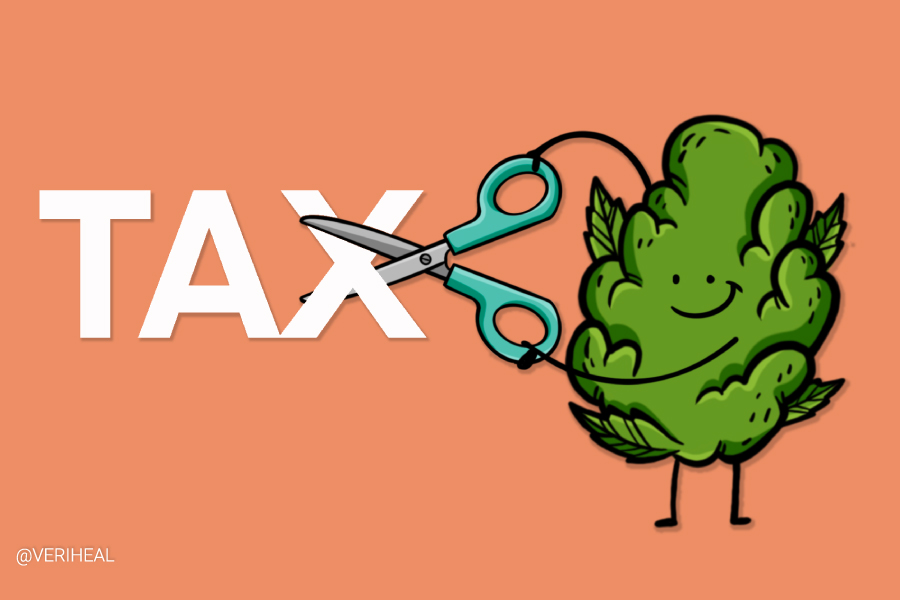When it comes to the burgeoning cannabis industry in the United States, one subject that comes up over and over is taxes. And it’s easy to understand the reason why. For many states, tax revenue is a motivating factor when it comes to legalizing cannabis. It’s an important factor in multiple ways. First of all, customers purchasing cannabis, whether for recreational or medical use, pay taxes when they purchase legally. That’s money that the state can put to good use as they see fit. For example, Illinois created the R3 program that uses cannabis tax revenue to help communities impacted by the War on Drugs.
And cannabis users are not the only ones being taxed. Businesses in the cannabis industry must pay a business tax when they file their yearly returns. That’s good news for the state—another source of income that can be used for things that benefit all the state’s residents. But what makes it a difficult pill to swallow for some cannabis business owners is that they’re required to pay not only state taxes but federal business taxes too—even though cannabis remains illegal at the federal level.
The Problem with the Tax Situation For the Cannabis Industry
The IRS code requires cannabis businesses to file federal income tax returns. The ideological issue is clear—the federal government doesn’t support cannabis legalization but is still willing to profit from the industry. But it’s actually a practical problem for business owners as well.
Most businesses, when filing their tax returns, are able to take advantage of several tax breaks, credits, and deductions available to business owners. But because cannabis businesses are “trafficking in controlled substances,” which is federally unlawful, they are ineligible for most deductions. This comes through Internal Revenue Code Section 280E, a part of the tax code that cannabis business owners know well and heavily dislike. Because of this tax code, cannabis businesses end up paying a higher tax rate, in most cases, than other businesses.
Why You Should Get Your Medical Marijuana Card
Veriheal has satisfied millions of patients nationwide by giving them access to these benefits
- Larger purchase limits
- Peace of mind
- Enhanced legal protection
- Access to higher potency strains
- Save up to 25% on cannabis purchases
- Skip the line at the dispensary
That’s a problem for a number of reasons beyond the basic unfairness of it. For one thing, virtually all cannabis businesses are fairly new, and newer businesses have a tendency to need more assistance as they find their footing. Instead, these businesses face challenges that others simply don’t.
Additionally, there’s the current COVID-19 situation, which is taking a toll on the economy. And because cannabis businesses can’t take advantage of banking protections or other forms of federal assistance, they run the risk of being even more hard-hit by the recession.
The New Plan For Cannabis Businesses
An addition to the tax code that was enacted in 2018 stipulated that businesses grossing less than $25M in revenue could deduct a larger portion of their expenses. But there has been an ongoing debate ever since about whether that addition included the cannabis industry.
But now the IRS has updated their expectations to clarify that cannabis companies can, in fact, take advantage of this loophole. From their perspective, it’s a way to bring the new industry into more complete compliance with the tax code. But from the point of view of those working in the industry, it represents much-needed relief and an opportunity to keep their business expenses in the black.
The cannabis industry is a good thing for the government as well as for cannabis users. The better job we do as a nation at supporting cannabis businesses, the better off we will all be. You can do your part by visiting your local dispensary and learning more about the products that might be right for you. And if the price tag makes you flinch, just remember that by paying the tax on your cannabis products, you’re helping a new industry find its feet.
Author, Share & Comments
















